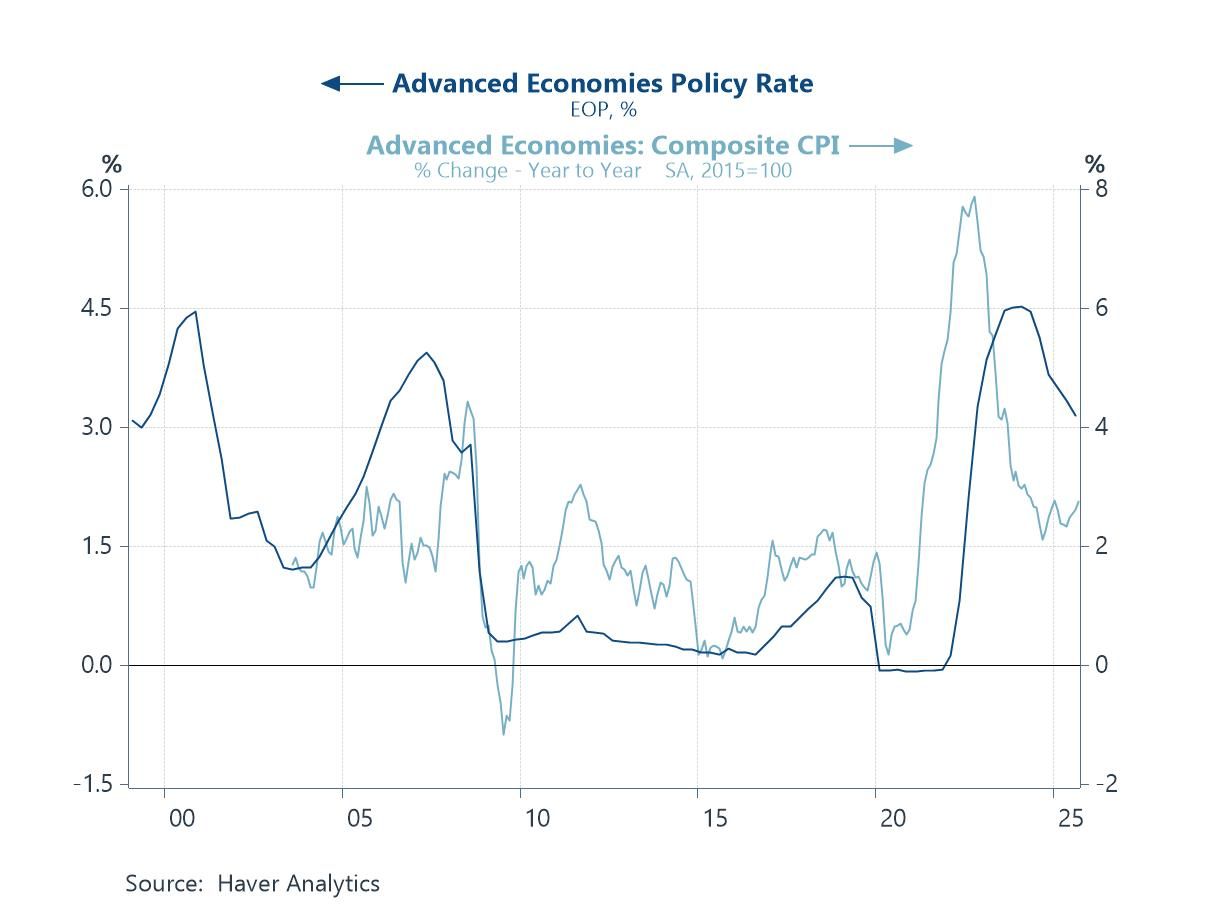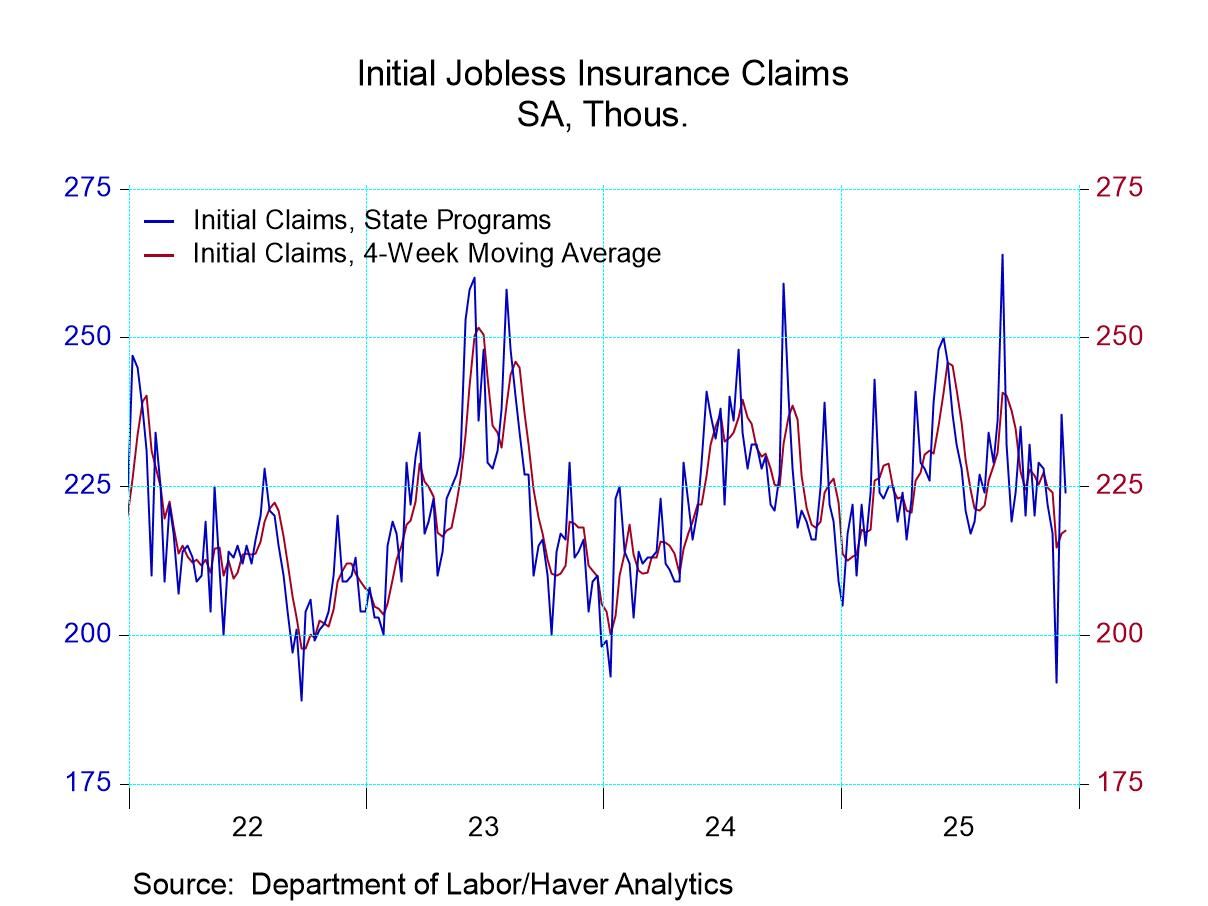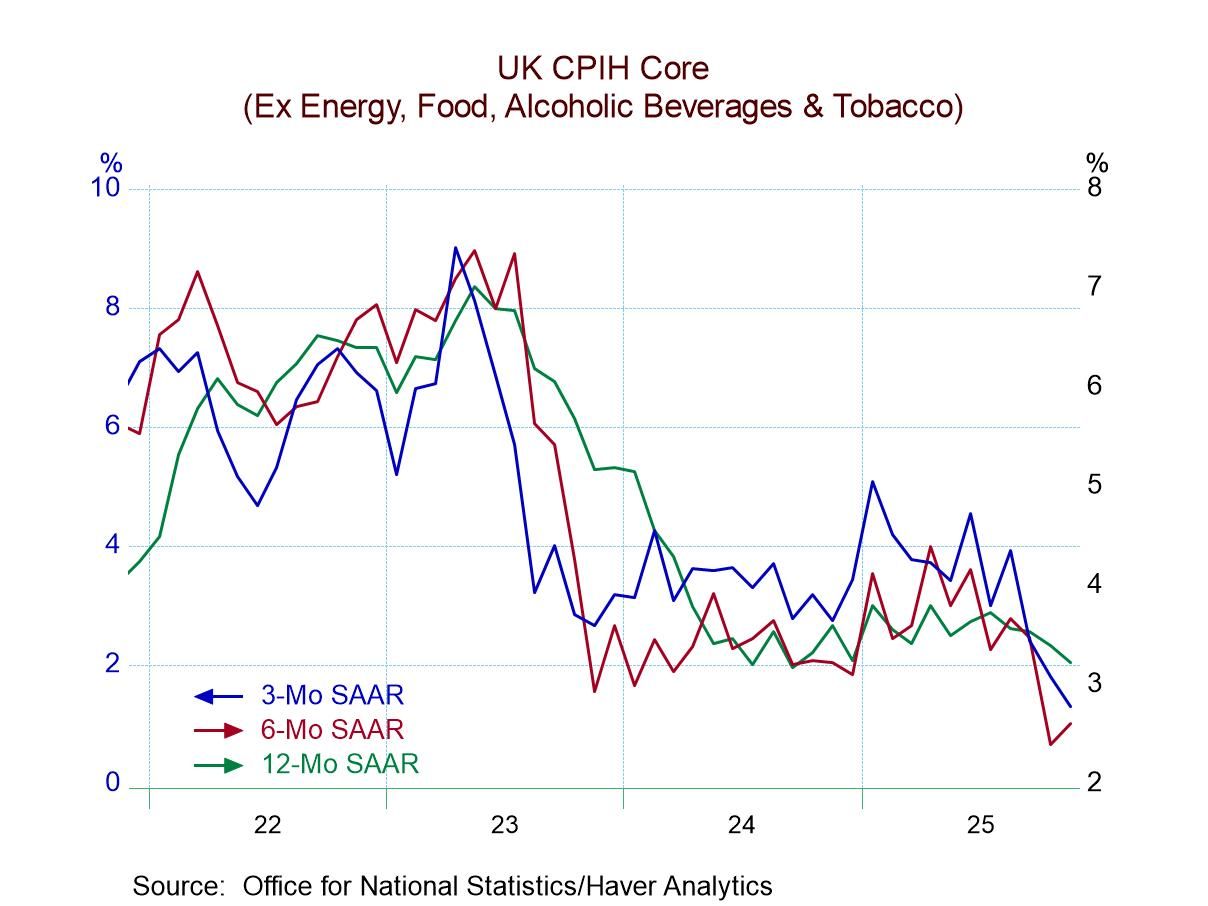 Global| Oct 21 2009
Global| Oct 21 2009U.S. Weekly Mortgage Applications Fall As Up-Trend in Purchases Slackens
by:Tom Moeller
|in:Economy in Brief
Summary
The Mortgage Bankers Association indicated that mortgage applications fell 13.7% last week. The drop left the weekly total down from the end of last month as earlier gains in applications slackened. Nevertheless, the monthly average [...]
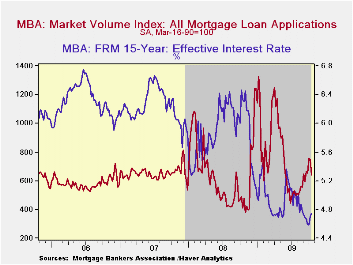
The Mortgage Bankers Association indicated that mortgage applications fell 13.7% last week. The drop left the weekly total down from the end of last month as earlier gains in applications slackened. Nevertheless, the monthly average level of applications rose 11.5% from September due to strong weekly gains during the month and a strong start to begin October.
Applications to purchase a home fell hard during the last two weeks and the declines suggest a topping of a previously firm uptrend. The latest level was roughly equal to the early-August figure. During the last ten years there has been a 51% correlation between the y/y change in purchase applications and the change in new plus existing single family home sales. The correlation has lessened recently. Applications to refinance mortgages fell hard last week but for the month so far remained up 17.5% from September and double the June low. Earlier declines in interest rates from the 2006 high had prompted refinancing at blistering 20% rate during most of 2007 and 2008.
The effective interest rate on a conventional 15-year mortgage
rose slightly last week to 4.75%. Though still down from the June
average of 5.21% and near their lowest in decades, rates have risen
slightly from the early-October low of 4.58%. For 30-year mortgages,
the rate also rose slightly last week to 5.29% after reaching a high of
5.79% in early-June. Interest rates on 15-year and 30-year mortgages
are closely correlated (>90%) with the rate on 10-year Treasury
securities. Rates on adjustable one-year mortgages rose to 6.94% last
week which was the highest level since November of last year.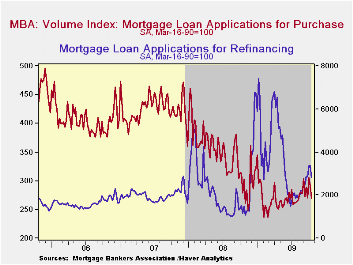
During the last twelve months, the number of fixed-rate mortgage applications has risen 51.0% while the number of adjustable-rate mortgage applications has nearly tripled.
The Mortgage Bankers Association surveys between 20 to 35 of the top lenders in the U.S. housing industry to derive its refinance, purchase and market indexes. The weekly survey covers roughly 50% of all U.S. residential mortgage applications processed each week by mortgage banks, commercial banks and thrifts. Visit the Mortgage Bankers Association site here.The figures for weekly mortgage applications are available in Haver's SURVEYW database.
Gauging Aggregate Credit Market Conditions from the Federal Reserve Bank of San Francisco can be found here.
| MBA Mortgage Applications (3/16/90=100) | 10/16/09 | 10/09/09 | Y/Y | 2008 | 2007 | 2006 |
|---|---|---|---|---|---|---|
| Total Market Index | 641.0 | 742.9 | 57.1% | 642.9 | 652.6 | 584.2 |
| Purchase | 268.8 | 290.9 | -13.8 | 345.4 | 424.9 | 406.9 |
| Refinancing | 2,808.0 | 3,374.6 | 142.3 | 2,394.1 | 1,997.9 | 1,634.0 |
| 15-Year Effective Interest Rate (%) | 4.75% | 4.70% | 6.31% (10/08) | 5.9% | 6.2% | 6.3% |
Tom Moeller
AuthorMore in Author Profile »Prior to joining Haver Analytics in 2000, Mr. Moeller worked as the Economist at Chancellor Capital Management from 1985 to 1999. There, he developed comprehensive economic forecasts and interpreted economic data for equity and fixed income portfolio managers. Also at Chancellor, Mr. Moeller worked as an equity analyst and was responsible for researching and rating companies in the economically sensitive automobile and housing industries for investment in Chancellor’s equity portfolio. Prior to joining Chancellor, Mr. Moeller was an Economist at Citibank from 1979 to 1984. He also analyzed pricing behavior in the metals industry for the Council on Wage and Price Stability in Washington, D.C. In 1999, Mr. Moeller received the award for most accurate forecast from the Forecasters' Club of New York. From 1990 to 1992 he was President of the New York Association for Business Economists. Mr. Moeller earned an M.B.A. in Finance from Fordham University, where he graduated in 1987. He holds a Bachelor of Arts in Economics from George Washington University.



